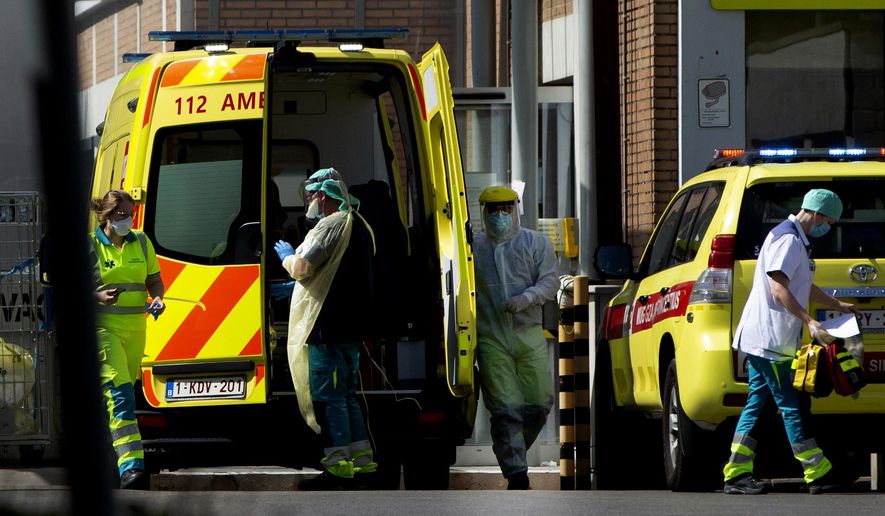As European Union countries weigh tougher coronavirus restrictions, top EU officials on Wednesday urged the bloc’s 27 nations to introduce common rules to test for the disease and track its spread to help prevent further damage to their economies.
European Council President Charles Michel, who will chair an extraordinary summit of EU leaders on Thursday evening focused on the pandemic, also urged them to prepare for logistical challenges likely to plague the rollout of any vaccines.
The World Health Organization said for the second consecutive week, the European region accounted for the biggest proportion of new infections, with more than 1.3 million cases or about 46% of the worldwide total. The U.N. health agency said deaths were also on the rise in Europe, with about a 35% spike since the previous week. WHO also noted that hospitalizations and ICU occupancy due to COVID-19 increased in 21 countries across Europe.
Across all of Europe, more than 250,000 virus-related deaths have been reported, according to a tally by Johns Hopkins University.
France’s president was addressing the nation Wednesday as the country braces for a possible lockdown to prevent hospitals being overwhelmed. Belgium, which has Europe’s highest infection rate, is considering a similar move while German Chancellor Angela Merkel is pressing for a partial lockdown.
“We are in a storm. We are all in the same boat. And in this storm, we must keep cool heads,” Michel told French radio RTL.
European Commission President Ursula von der Leyen told reporters in Brussels that Europe is confronted “with two enemies at this time. We’re dealing with the coronavirus; the virus itself and also corona fatigue. That is, people are becoming more and more fed up with the preventive measures.”
The world’s biggest trading bloc relies on free movement between its member states and the mutual recognition of each other’s standards and laws to keep the EU economy alive. Michel said nations must coordinate their approval of new coronavirus tests and of tracing systems aimed at halting its spread.
He said he hoped that EU leaders “understand that if they each put in place their own national testing strategy without coordinating at a European level, without mutual recognition, then we will find ourselves back in the battles of the past.”
As the pandemic spread through Europe in late February-March, countries bickered over access to face masks and medical equipment, while hasty border restrictions caused major traffic jams.
Von der Leyen said the EU’s executive arm will use 100 million euros ($117 million) in emergency funds to buy rapid antigen tests. These are not as reliable as standard PCR tests but provide results far more quickly. She said both kinds of tests could complement each other. The commission plans to distribute the rapid tests to member countries.
Several European countries, including Spain, are reportedly pushing for a system of mandatory tests ahead of traveling within the region as a way to avoid any new border closures. The program, if approved, could also involve random tests on arrivals.
Michel also urged the leaders to prepare for prioritizing vaccinations.
“Based on the information we have, at the end of the year or early next year, 3 or 4 vaccine candidates could be available,” Michel said.
Von der Leyen said the commission will prolong its value added tax exemption on the purchase of vaccines and testing kits for a further six months.
“I think that this year’s Christmas will be a different Christmas,” von der Leyen added.
____
Aritz Parra in Madrid contributed to this report.
____
Follow all of AP’s coronavirus pandemic coverage at http://apnews.com/VirusOutbreak and https://apnews.com/UnderstandingtheOutbreak




Please read our comment policy before commenting.